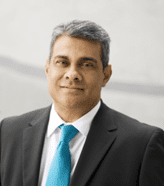The wheels of service delivery and the broader economy demand not just more engineering graduates, but more registered engineering professionals, able to take responsibility and make decisions independently, whilst ensuring the highest level of quality and safety. It is for this reason that organisations need to work towards developing all engineering staff towards professional registration with the Engineering Council of South Africa (ECSA), says ECSA.
Making staff more valuable The learning that takes place with registration includes a wide range of essential skills. Candidates must master – and be able to demonstrate – that they can not only analyse engineering problems but also develop solutions. They must understand and apply advanced knowledge, including general principles and specific aspects of their jurisdiction and local area. What is critical for the businesses, is that staff must manage engineering activities and communicate clearly with others in the course of doing this. Taking a broad and forward view of what they are doing is also vital: they must develop forward thinking,and address the social, cultural and environmental impactof their projects – as well as the legal requirements and health and safety aspects. ECSA also requires candidates to demonstrate ethical conduct and to take responsibility for the engineering decisions they make. All these demands raise the calibre of candidate in the workplace, and therefore uplift the profile of your company – instilling confidence in the employee’s ability. Better returns, lower risk The skills learnt in the lead-up to professional registration create a strong foundation for the candidate that engineering companies can rely on for years to come, in the servicing of their clients’ needs – knowing that their staff is legally and professionally capable of tackling complex projects independently, or actively contributing to project teams. This means less time-consuming management, lower risks, and better returns. Supporting development towards registration ensures that there is a continuous cycle of skills transfer, and experience within the business – ensuring that the expertise can be builtup over the years and effectively passed down from one generation to the next.“It is possible to launch a small entrepreneurial firm, grow exponentially and achieve incredible results through investing in people. As a result of our mentoring ethos, the skills and services of our staff members are highly sought after all over the world,” says Dempsey Naidoo from Mott McDonald, finalist in CESA Mentoring Company of the Year.
Developing the profession The reality is that the engineering profession is one that is at risk; a scarce skill, with a dearth of 35-55 year old professionals. The development of engineering graduates to the point of registration has therefore been identified as a national priority which requires targets, policy and funding. The SETAs are being encouraged to make discretionary funds available to support companies in their efforts to provide structured workplace experience to graduates. ECSA has been lobbying the Department of Higher Education and Training to set national targets, not only for graduation, but for candidacy programmes and to fund the candidate phase. Calls for expressions of interest from SETAs are increasingly reflecting support for graduate internships or candidate programmes. Candidate programmes are no longer a ‘nice-to-have’ but are fast becoming key to addressing South Africa’s ever-increasing demand for engineering professionals. Candidates are also quick to see where organisations will invest in them and move there as soon as an opportunity arises. Organisational commitment Addressing the problem starts with an organisation’s commitment to fill their engineering workforce with registered professionals as well as supporting graduates to get registered and stay registered. “Research has confirmed that companies that invest in structured training and mentoring of their graduates record higher levels of productivity from their graduates when compared with their counterparts whose training and mentoring is not structured,” says Edgar Sabela, Acting CEO of ECSA. Organisations should start by registering a Commitment and Undertaking (C&U) with ECSA, ensure that their graduates register as candidates and provide them with appropriate projects, supervisors and a mentor to oversee and monitor progress.






